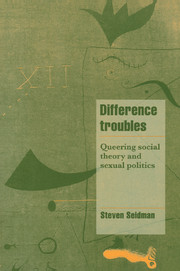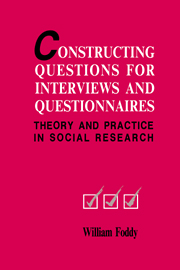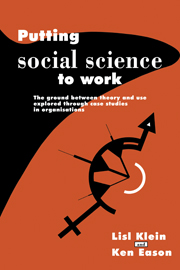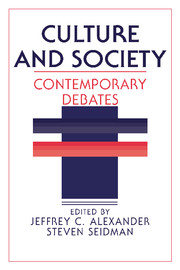Difference Troubles
Steven Seidman examines the implications for social theory and sexual politics of taking difference seriously. He explores the troubles difference can make for the social sciences and for the very people--feminists, queer theorists, postmodernists--who champion difference. This is a wide-ranging and sophisticated discussion of contemporary social theory and sexual politics, focusing on difference, knowledge and power. It also argues persuasively for a pragmatic approach to questions of difference in theory and politics.
- Author very well known for contributions to social theory and queer theory
- Provides a major new statement addressing weaknesses in much contemporary theorising about 'difference' and identity politics
- Offers a sophisticated integration of gender/gay studies with mainstream sociology and cultural studies
Product details
May 2012Adobe eBook Reader
9781139241205
0 pages
0kg
This ISBN is for an eBook version which is distributed on our behalf by a third party.
Table of Contents
- Introduction: the contemporary reconfiguring of social theory and cultural politics
- Part I. Resisting Difference: The Malaise of the Human Sciences:
- 1. The political unconscious of the human sciences
- 2. The end of sociological theory
- 3. Relativizing sociology: the challenge of cultural studies
- 4. The refusal of sexual difference: queering sociology
- 5. Difference troubles: the flight of sociology from 'otherness'
- Part II. Between Identity and Difference: From Lesbian and Gay to Queer Theory:
- 6. Identity and politics in a 'postmodern' gay culture
- 7. Deconstructing queer theory or some difficulties in a theory and politics of difference
- Part III. Democratic Prospects: The Politics of Knowledge and Identity:
- 8. Transfiguring sexual identity: aids and the cultural politics of sexuality and homosexuality
- 9. From gay ethnicity to queer politics: the renewal of gay radicalism in the United States
- 10. Postmodern anxiety: the politics of epistemology
- 11. The politics of sexual difference in late twentieth century America
- 12. Difference and democracy: group recognition and the political cultures of the United States, Holland, and France
- Epilogue: pragmatism, difference and a culture of strong democracy.











